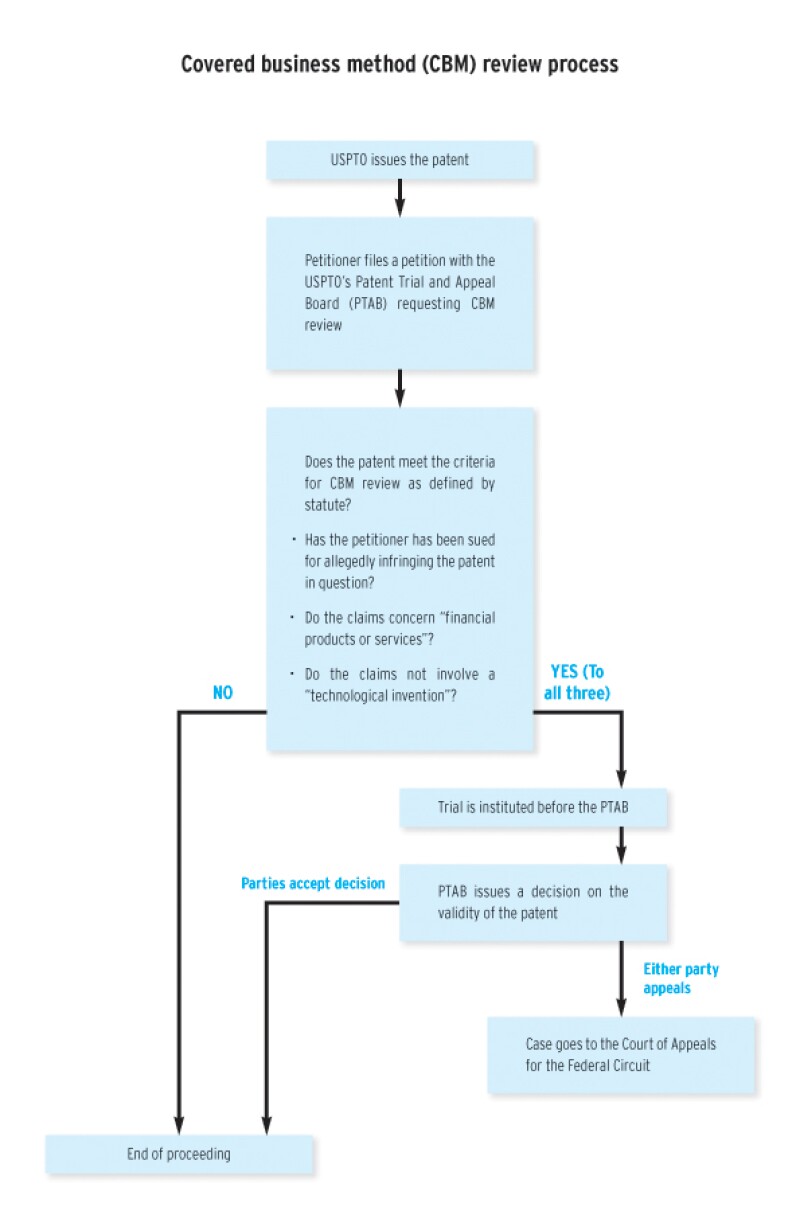Covered Business Method (CBM) review is a post-grant procedure introduced under the America Invents Act (AIA). It allows alleged infringers to challenge the validity of business method patents “covered” under Section 18 of the AIA through the USPTO’s appeals system, rather than through litigation.
CBM review is only available for patents which relate to “a method or corresponding apparatus for performing data processing or other operations used in the practice, administration, or management of a financial product or service”. Patents concerning “technological inventions” are not eligible for the procedure.
In order to initiate a CBM review, the petitioner must have been sued for infringement of the patent in question.
CBM review is an interim measure which will be available until September 16, 2020. The USPTO will not accept any new petitions for CBM reviews on or after that date.
The chart below outlines the various stages a patent may go through under CBM review.
Opponents of CBM review claim that lobbyists from the financial services industry pressured Congress to include the provision as part of the AIA.

See also: analysis of the first CBM review decision in SAP v Versata (Managing IP subscription or free trial required).











